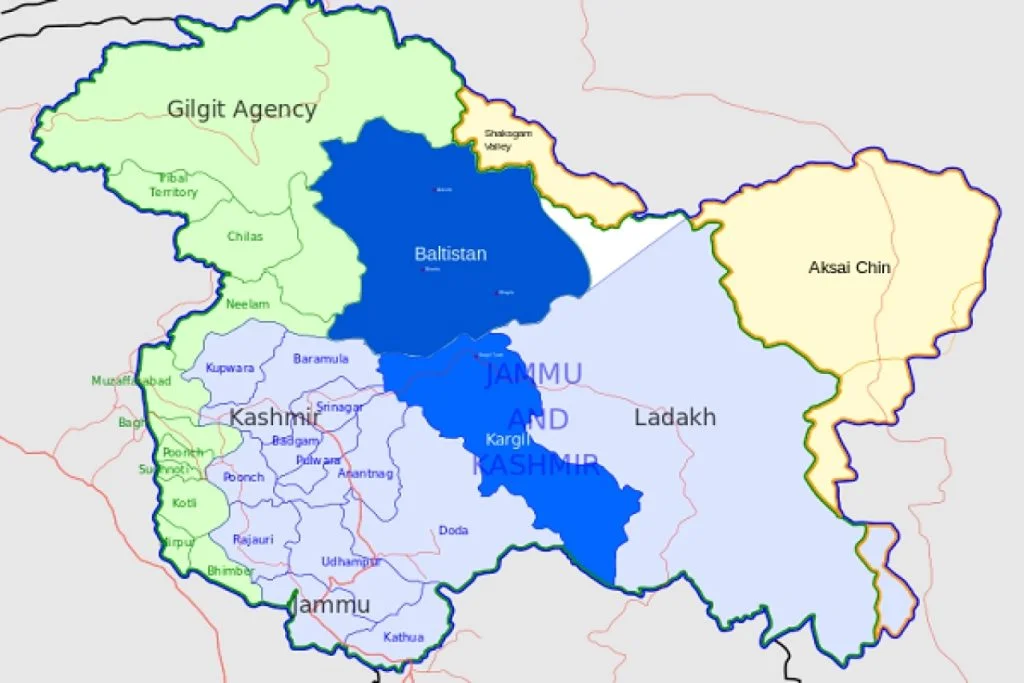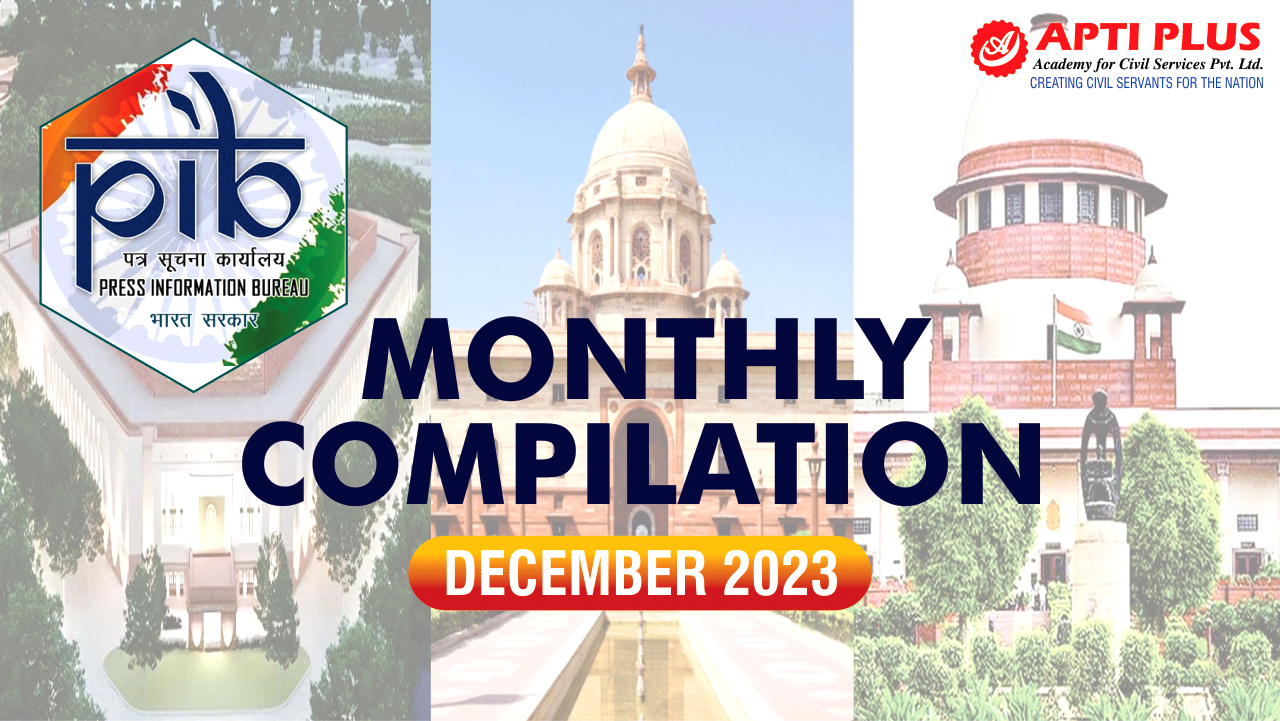Description

Copyright infringement not intended
Picture Courtesy: kashmirobserver.net
Context: In January 2024, Ladakh's Leh Apex Body (LAB) and Kargil Democratic Alliance (KDA) jointly submitted a memorandum to the Ministry of Home Affairs, expressing their demand to extend Ladakh's territorial control up to Gilgit-Baltistan in Pakistan-occupied Kashmir, as part of an ongoing dialogue with the Centre.
Details
- Ladakh's socio-political landscape is represented by two prominent conglomerates—the Leh Apex Body (LAB), which includes several Buddhist religious and political parties, and the Kargil Democratic Alliance (KDA), representing Muslim religious groups and local parties.
- The LAB and KDA jointly submitted a memorandum to the Ministry of Home Affairs (MHA) in January, outlining fresh demands from Ladakh. Among these demands is the extension of Ladakh's territorial control, reaching up to Gilgit-Baltistan in Pakistan-occupied Kashmir (PoK).
Current Status of Ladakh
- Union Territory Status: Ladakh was established as a Union Territory on August 5, 2019, along with the reorganization of the state of Jammu and Kashmir. The special constitutional position that Ladakh had under Article 370 was revoked by the central government during this reorganization.
- Legislative Structure: Unlike the Union Territory of Jammu and Kashmir, Ladakh does not have its legislature. Governance in Ladakh is facilitated through two elected hill councils—the Ladakh Autonomous Hill Development Council-Kargil (LAHDC-Kargil) and LAHDC-Leh. These councils address micro-governance issues in the region.
Latest demands of the region
Demand for Restoration of Statehood with a Legislature
- Over the past two years, both Leh and Kargil, the socio-political bodies of Ladakh, have engaged in street agitations against the Union Territory (UT) status without a legislature.
- The major demand is for the restoration of Statehood, including the establishment of a legislature for Ladakh. Historically, Ladakh had representation in the Jammu and Kashmir Assembly, and the demand seeks a return to a similar legislative structure.
Special Status Under Sixth Schedule and Article 371
- There is a unanimous call from the people of Ladakh for special status under the Sixth Schedule and Article 371 of the Constitution of India.
- This demand is in line with the provisions extended to certain northeastern states like Mizoram, Tripura, and Sikkim. The goal is to safeguard the unique cultural, ecological, and demographic aspects of Ladakh by restricting external influence, particularly in ecologically fragile areas.
Exclusive Rights over Recruitment
- Ladakh demands exclusive rights over recruitment processes to protect the interests of its residents.
- The proposal includes the establishment of the Ladakh Public Service Commission for the recruitment of gazetted jobs, and the twin hill councils (LAHDC-Kargil and LAHDC-Leh) should have the authority to recruit lower-rung staff for the region. The key bodies of Ladakh stress that Ladakh residents should be prioritized through the requirement of the Ladakh resident certificate for job applications within the region.

Why demand for extension of territorial control?
Historical and Territorial Connection
- The demand for the extension of territorial control is rooted in the historical connection of Ladakh with the Gilgit-Baltistan area. Prior to the partition of British India in 1947, the Ladakh district also included the Gilgit-Baltistan region.
- The memorandum emphasizes the historical continuity and seeks the inclusion of Gilgit-Baltistan into Ladakh, advocating for a territorial extension.
Political Representation and Reservation
- The memorandum calls for attempts to include Gilgit-Baltistan into Ladakh and demands the reservation of seats for Gilgit-Baltistan once a legislature is granted to the region.
- This reflects the political aspect of Ladakh's demand, seeking not only territorial control but also representation for the people of Gilgit-Baltistan within Ladakh's legislative framework.
Strategic and Security Considerations
- Ladakh shares a long and volatile Line of Actual Control (LAC) with China, and it experienced a violent skirmish between the Indian and Chinese troops in 2020.
- The memorandum underscores the importance of empowering locals in Ladakh, emphasizing that the understanding of the harsh terrain by the residents has historically been beneficial in military and logistic operations. This aspect is linked to fostering stability in the region and enhancing foreign policy objectives.

Union Government Stand
- In response to street protests in Ladakh, the Indian government formed a committee in 2022, led by Minister of State G. Kishan Reddy. This committee was tasked with engaging with members of the Leh Apex Body (LAB) and Kargil Democratic Alliance (KDA).
- Subsequently, in 2023, another high-powered committee was established, this time led by Minister of State Nityanand Rai. The 17-member committee included the Lieutenant Governor of Ladakh and representatives from both LAB and KDA.
- The committees were empowered to engage with the stakeholders of Ladakh to address their concerns and find solutions.
- Recently, the LAB and KDA submitted a written memorandum to pave the way for more structured talks between New Delhi and Ladakh. This indicates ongoing efforts by the central government to address the demands and issues raised by the people of Ladakh through a structured dialogue process.
Must Read Articles:
HIGH-POWERED LADAKH COMMITTEE: https://www.iasgyan.in/daily-current-affairs/high-powered-ladakh-committee
STATUS OF JAMMU AND KASHMIR: https://www.iasgyan.in/daily-current-affairs/status-of-jammu-and-kashmir
|
PRACTICE QUESTION
Q. Jammu and Kashmir face unique economic challenges due to geographic constraints, security concerns, and infrastructure limitations. How can sustainable development models be implemented that benefit all communities, address environmental concerns, and promote equitable growth, while respecting the region's unique ecological and cultural landscapes?
|










